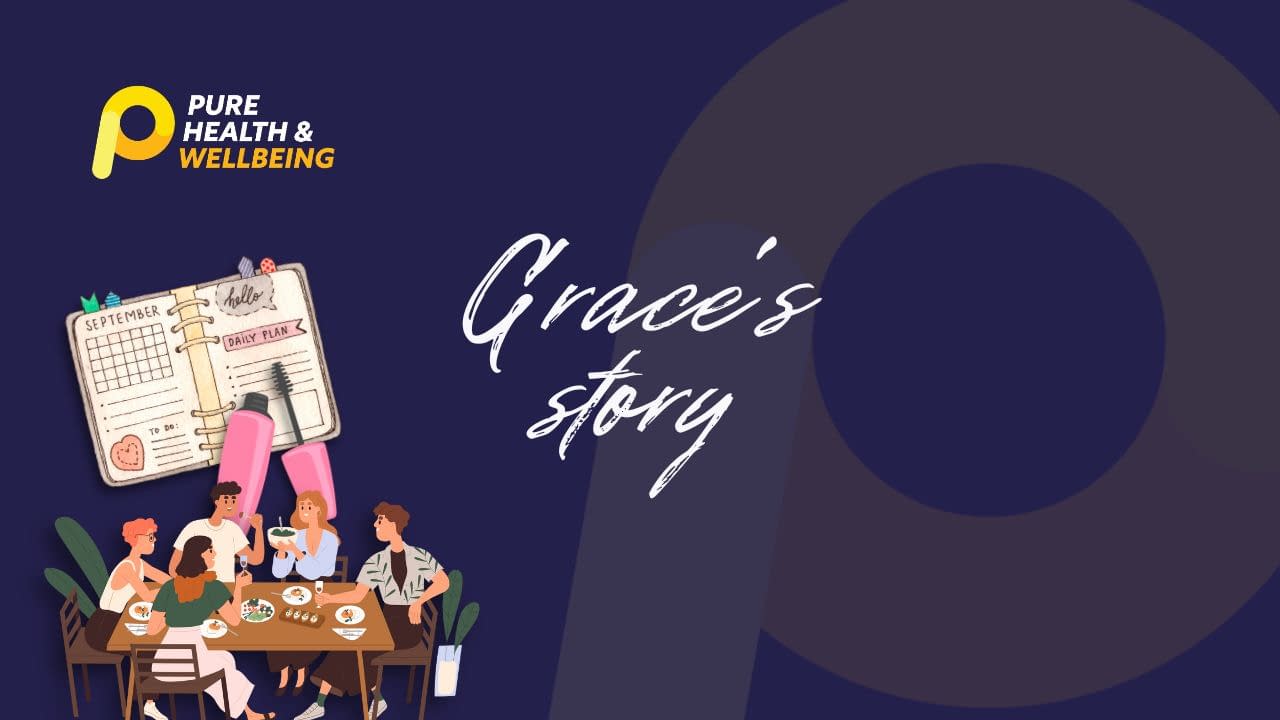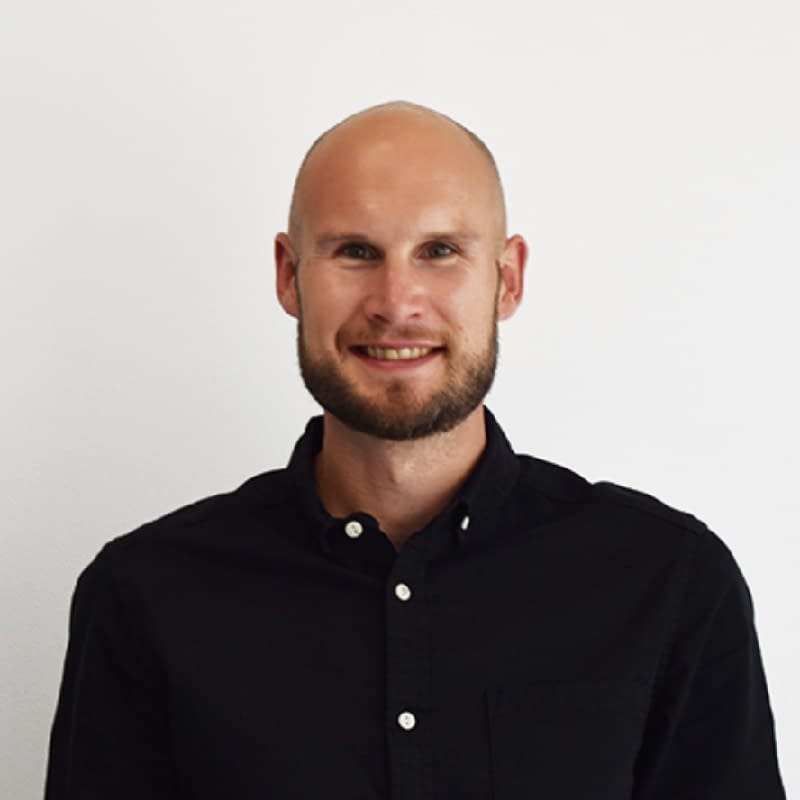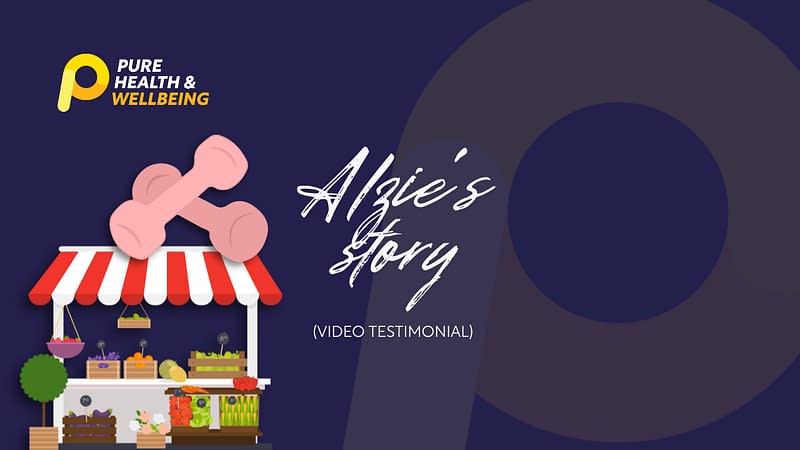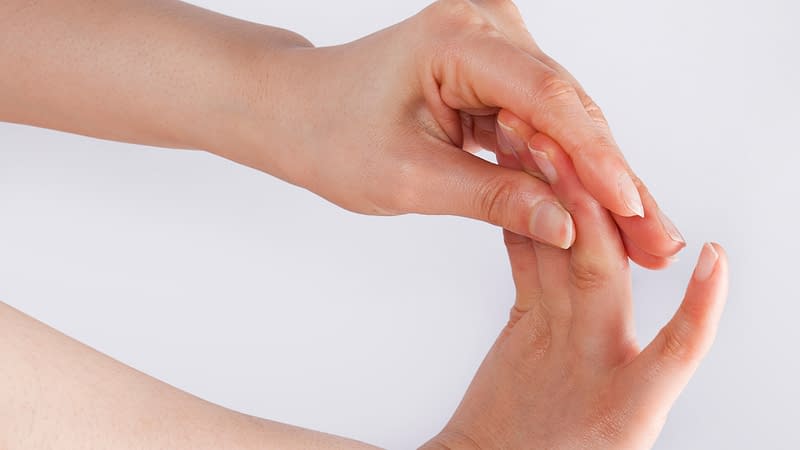Grace is a pseudonym.
Grace’s Story
Grace has been living with Fibromyalgia and Chronic Fatigue for several years. These conditions have substantially impacted her ability to manage day-to-day living. She has found it extremely difficult both physically and emotionally to socialise, exercise, and do daily tasks. For Grace, fatigue was of concern; she used to spend over 18 hours per day sleeping, meaning she found it considerably difficult to partake in any tasks, including self-care. Previously, Grace was an active person who enjoyed spending time with her friends and family. She missed this aspect of herself, and it was important for her to regain control of her life.
Despite many different tests and investigations, Grace was advised that traditional courses of treatment would be ineffective; she found that medication was not helping her situation. She discussed with the GP the support available, and she was referred to the pain management programme.
What We Did
Grace was seen by a Health & Wellbeing Coach, who specialises in chronic pain management. The initial assessment facilitated a shared and open space for Grace to voice her story. Grace felt pleased during the initial assessment as she had someone to speak to for 45 minutes regarding her problems on a one-to-one basis. From the first session, Grace sparked motivation to regain control over her life with the support of a Health & Wellbeing Coach.
Through discussions with the Health & Wellbeing Coach, Grace established both emotional and physical goals that she would like to work on throughout the programme. Through exploration of the pain cycle and the boom-and-bust cycle, Grace noted that she predominantly wanted to work on her sleep and fatigue to help change her activity on a day-to-day basis. The Health & Wellbeing Coach discussed with Grace the barriers that she had to achieving these goals; consequently, through encouragement, Grace established how she would break down the goals into small and achievable goals to work on a weekly basis.
As a result of the initial call, the following goals were made:
- Working on sleep routine
- Increasing activity levels throughout the day
- Eating better
- Socialising
Grace set goals for herself regarding sleep; she wanted to reduce her naps throughout the day to help her with her activity levels and tiredness. This goal was a journey of finding things that worked for Grace. With advice from the Health & Wellbeing Coach, she noted that reducing naps gradually, reducing caffeine, and having a good bedtime routine helped her to manage her fatigue better.
In relation to this goal, Grace wanted to increase her activity throughout the day. Through discussions with the Health & Wellbeing Coach, she learned a technique called pacing. In implementing this, she noticed that pacing helped to manage day-to-day tasks better and that taking a break is good for her pain. Previously, Grace tended to always want to get all her tasks done at once, which led to multiple flare-ups. Through using an activity planner, prioritising, and pacing, Grace began to split her activities down into different days of the week to make this more manageable for her.
Grace wanted to regain control of her life and get back to socialising with her friends and family. This goal was easier for Grace to work on once she tackled the issues with her sleeping and fatigue levels. She noted that it would be better for her to prioritise certain days so that she could socialise to manage her energy levels on that day.
Grace noted that she feared that her friends would not understand her pain and had worries as to what they may think. Through one-to-one discussions with the Health & Wellbeing Coach, Grace began to understand her pain more, and in turn, she used some of the resources sent to explain to her friends about it. She noted that she wished she would do this sooner, as it was less scary than she thought and her friends were really understanding about the situation. She just needed someone to push her to do this and help to regain her self-confidence.
Before the programme, Grace was unaware of the relation between lifestyle factors and pain and heavily relied on medication. Through the programme, Grace began to note the relationship between the goals and that working on one goal would help achieve another goal.
Grace’s Story: Moving Forward!
Before the programme, Grace was having several naps throughout the day which made it difficult to partake in any tasks. She had a heavy reliance on caffeine, often drinking 8+ cups of coffee per day. By the end of the programme, Grace had no naps throughout the day, and she was finding her days a lot more productive to where she had time for exercising and completing the housework. She also mentioned that due to the energy she now had, she was able to:
“wake up and smile, I got dressed and put makeup on for the first time in ages, I went to lunch with my friends, I would’ve never done that before the sessions.”
Prior to the programme, Grace had not socialised with any friends in over 8+months; she now makes it a weekly priority to meet with friends on the weekends. She has been attending big events with her friends, like weddings and birthdays, when she did not have the confidence to be able to do this before.
Grace did not do any physical activity; she used to try to walk once per week, but this caused her a lot of pain. However, through pain education, understanding the benefits of exercise for her pain, and implementing pacing, Grace was able to slowly increase her strength and activity levels. She made exercising a priority, pushing herself to try different forms of activity.
Feedback
Grace has found the Health & Wellbeing Coaching sessions with Alaina to be vital in helping develop her self-confidence and to better manage day-to-day life. She said:
“I can’t believe the change! I am feeling 100 times better in myself, taking more of an interest in my appearance and myself, the sessions have been brilliant.”
Through Alaina’s guidance throughout the sessions, Grace has found ways in which she can manage her fibromyalgia and chronic fatigue and take more control of her life. This highlights the life changing benefits of adopting a 1-1 personalised coaching approach to manage chronic pain.




